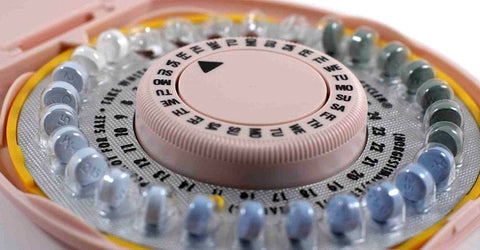Sex-Specific Weight Loss
It is not a myth that men can lose weight faster than women.1 The inherent physiological differences between the sexes play a big role when it comes to losing weight, especially in the initial stages.2 Men possess characteristics that may favor greater weight loss as compared to women.3 To understand the reasons behind this, we must consider the sex differences in energy metabolism, hormonal profiles, and behaviors that may contribute to the differences we see in the ability of the sexes to lose weight.
Body composition—women have a higher fat percentage
Men and women show significant differences in the amount of body fat and lean muscle tissue they carry, with men having more lean tissue and women having greater fat mass.3,4 Lean tissue is more metabolically active than fat; thus more lean tissue contributes to a higher resting metabolic rate.3 This means that in general, men burn more calories than women, even at rest. Higher levels of testosterone in men are largely responsible for the variance in body composition, since testosterone is critical for building and maintaining muscle mass.5 On the other side of things, estrogen also contributes to the gender differences in body composition, namely fat mass.6 From the onset of puberty through to menopause, women maintain a higher percentage of body fat, which was evolutionarily there to support the ability to reproduce.6 Evidence shows that estrogen acts on the liver and adipose tissue, preferentially promoting postprandial conversion of fuel into fat tissue—and which may make fat loss more difficult for women.3
Fat distribution—men “appear” to lose more weight
Not only is there a difference in the percentage of body fat and lean mass between genders, there is also a difference in the distribution of body fat.2 This relates back to the differing hormonal profiles of men and women and the locations of receptor sites for these hormones.3 For example, estrogen receptors are higher in the subcutaneous tissue in the buttock, hip, and thigh regions in women, which explains why women hold excess fat in these locations.3 Men, on the other hand, have a pattern of central obesity, where the fat tissue is mainly visceral, abdominal fat.2 When weight loss is controlled between the sexes, it has been found that men lose more intra-abdominal fat than women, whereas women lose more subcutaneous fat.7 Fat loss around the abdomen is generally more noticeable, so even if weight loss is similar, it appears that men are losing more weight, even if they are not.
 With slow improvement, it's easy to become discouraged
With slow improvement, it's easy to become discouraged
Emotional eating—women are more likely to turn to food
Although both men and women struggle with overeating, women are more likely to turn to food to cope with stressors than men, which is thought to be due to the greater intensity of expressed emotions by women.8,9 This may present as another challenge for women to lose weight. Women are more likely to report eating in response to emotions like anxiety, anger, frustration, and depression.10 Interestingly, even the stress caused by the desire to be thin and dissatisfaction with body size is positively correlated with emotional eating.11 Women who experience higher levels of emotional stressors have more episodes of binge eating, resulting in weight gain and further impairing self-esteem, adding to the existing emotional strain.8 Since women, in general, are more prone to experiencing more intense emotions, emotional eating may be contributing to the inability to lose weight as easy as a male counterpart.
Other contributing factors
Body weight is predominately controlled by diet and physical activity, but there are underlying factors that can also contribute to enhanced weight gain or difficult weight loss.12 For women struggling to lose weight, it may be important to explore some of these other potential factors.
Polycystic ovarian syndrome (PCOS)
PCOS is one of the most common endocrinopathies affecting 6-18% of reproductive aged women.13Of these women, approximately 50% are overweight or obese, specifically carrying excess weight in the abdominal region.14 Due to the underlying insulin resistance found in most women with PCOS, it can be a challenge to lose weight effectively, even after appropriate dietary and lifestyle changes.15
Thyroid disorders
Thyroid hormones play a critical role in the regulation of body weight through controlling energy expenditure.16 It is well known that thyroid dysfunction, namely hypothyroidism, leads to a lower resting metabolic rate, and weight gain is a primary symptom of the disorder.17 When considering the prevalence of hypothyroidism in men and women, women are 4-6 times more likely to be affected, and the incidence continues to rise.18,19 This means that an underlying thyroid disorder should be considered in a woman who is unable to lose weight. Furthermore, if a thyroid disorder is identified but a woman still has symptoms or is not losing weight, an alternative management strategy may be needed; many patients are under replaced with levothyroxine therapy or do not receive the expected results.20 Interestingly, it has been found that improving TSH levels are not associated with weight loss; rather it is the free T3 and total T3 that are the most significant predictors associated with the greatest changes in body weight and resting metabolic rate.21 Unfortunately, most practitioners test TSH only. This may suggest that a simple TSH measurement may not be enough in a women struggling to lose weight, and more comprehensive testing may need to be done in a woman with suspected hypothyroidism.
Combined hormonal contraceptive use
It is very common for a woman to be using combined hormonal contraceptives, like the pill, vaginal ring, and the patch.22 Although their effects on weight and weight gain is debated, there is some evidence that suggests combined hormonal contraceptives may contribute to weight gain in some women by causing fluid retention and increasing storage of body fat.22 However, weight gain and weight loss are both noted as side effects of hormonal birth control, and not all women are effected.22If a woman is using hormonal contraceptives and is struggling to lose weight, this should be explored as a possible cause.

Fluctuations in the menstrual cycle
Female hormones are much more complicated than male hormones; the fluctuations in luteinizing hormone (LH), follicle-stimulating hormone (FSH), estrogen, and progesterone throughout a woman’s menstrual cycle influence her caloric intake, cravings, exercise performance, and ability to build lean muscle mass.23,24 It has been found that in the second half of a woman’s cycle, her luteal phase, women are more likely to have dysregulated eating habits, with an increase in binge-like episodes.23During this half of the cycle, woman also have greater cravings for sweet foods.23 Moreover, these hormonal variations influence the ability of a woman to build lean body mass.24 Prior to ovulation, muscle strength is increased, and this phase of the cycle favors a gain in muscle mass, which contributes to a higher metabolic rate and further weight loss.24 Fluid retention that also can occur at times in the menstrual cycle can create the illusion that a woman is carrying more body fat.25
As reviewed, there are many physiological differences between the sexes that contribute to the ability to lose weight. Body composition and fat distribution clearly differ between genders, but one must also consider the effect of emotions, hormonal variances, and certain underlying conditions that may make it more challenging for a woman to lose weight compared to a man. Now, although it is true than men can lose weight faster than women, research shows that after about six months of a weight-loss program, the results even out and become similar between the sexes.2
This content is not intended as a substitute for professional medical advice, diagnosis, or treatment. Individuals should always consult with their healthcare professional for advice on medical issues.
References:
- Williams R et al. Obes Rev. 2015;16(2):171-186.
- Millward J et al. British Journal of Nutrition. 2014;111:933–943.
- Wu B et al. J Nutr Metab. 2011:391809.
- Chumlea WC et al. International Journal of Obesity. 2002;26(12):1596–1609.
- LeBlanc E et al. The Journal of Clinical Endocrinology & Metabolism. 2011;96(12):3855–3863.
- O’Sullivan AJ. Obesity Reviews. 2009;10(2):168–177.
- Wirth A et al. Obes Res. 1998;6(6):393-399.
- Thompson SH et al. J Diabetes Obes. 2015;2(2):93-98.
- Kemp E et al. J Cons Pol. 2011;34:211-229.
- Tanofsky MB et al. Int J Eat Disord. 1997;21(1):49-54.
- Ostrovsky NW et al. Eat Behav. 2013;14(2):145-148.
- Weinsier R et al. Am J Med. 1998;105145-105150.
- Teede H et al. Obesity Society. 2013;21(8):1526-1532.
- Gambineri A et al. Int J Obes Relat Metab Disord. 2002;26:883–896.
- Escobar-Marreale H et al. The Journal of Clinical Endocrinology & Metabolism. 2005;90(12);6364–6369.
- Reinehr T. Mol Cell Endocrinol. 2010;316(2):165-171.
- Mullur R et al. Physiol Rev. 2014;94(2):355-382.
- Li H et al. Minerva Med. 2015;106(2):109-114.
- Leese GP et al. Clin Endocrinol. 2008;68(2):311–316.
- Chakera A et al. Drug Des Devel Ther. 2012;6:1–11.
- Liu G et al. Int J Obes (Lond). 2017;41(6):878–886.
- Informed Health Online. 2008. Accessed from: https://www.ncbi.nlm.nih.gov/books/NBK441582/
- Leeners B et al. Hum Reprod Update. 2017;23(3):300–321.
- Sung E et al. Springerplus. 2014;3:668.
- White C et al. Obstet Gynecol Int. 2011;2011:138451.
|
Bronwyn Storoschuk, ND Bronwyn Storoschuk, ND is a board-certified naturopathic doctor trained at the Canadian College of Naturopathic Medicine. Prior to attaining her ND, Dr. Storoschuk completed her Bachelor of Science (Honours) in Kinesiology at Queen’s University in Kingston, Ontario. She currently works in private practice in Toronto, Ontario. One of her practices is located within an integrative fertility clinic, where she provides naturopathic care to individuals undergoing assisted reproductive technology (ART). Dr. Storoschuk integrates evidence-based medicine with the understanding of the body’s natural physiology and innate healing wisdom. She is passionate about empowering women to take control of their hormonal health and has a clinical focus in hormone balance, reproductive health, and fertility. |




